AI Tools for Requirements Gathering
Smart systems engineering is no longer just about building a model. In modern digital engineering environments, teams are expected to deliver...
.jpeg)
Systems engineering can play a pivotal role in improving sustainability and a healthier planet with the development and management of critical systems. Learn how to use Model-Based Systems Engineering (MBSE) for modeling and simulating fire detection satellite systems with the Innoslate example project.
Project FireSat models space satellites that detect forest fires. You'll learn how to gather requirements, create a behavioral process model and physical models, and then use a verification and validation method to ensure the models meet the requirements.
Begin by developing the fire satellite system requirements documents and establishing relationships, including traced to, verified by, and satisfied by. As you build, you can add live diagrams directly into the document.
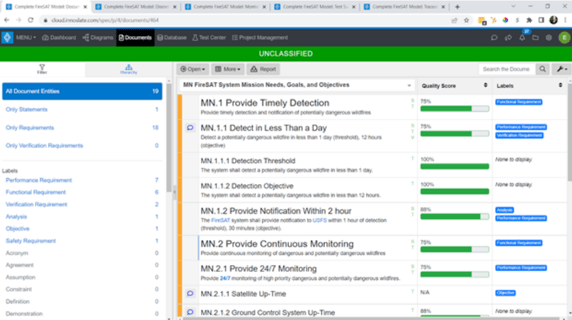
Next, start modeling the process. The Design Reference Mission for FireSAT is similar to other scientific earth observation missions. The normal operations are preceded by a series of spacecraft and payload commissioning steps, followed by disposal, years in the future at the end of the mission. Our systems engineers drag and drop steps, decisions, and actors (assets) into the diagram.
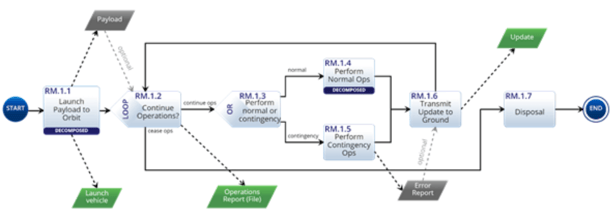
Create a concept of operations diagram for the system using an asset diagram and adding images for your asset. This diagram shows the various components and conduits that make up the FireSat system, adding attributes for accurate simulation.
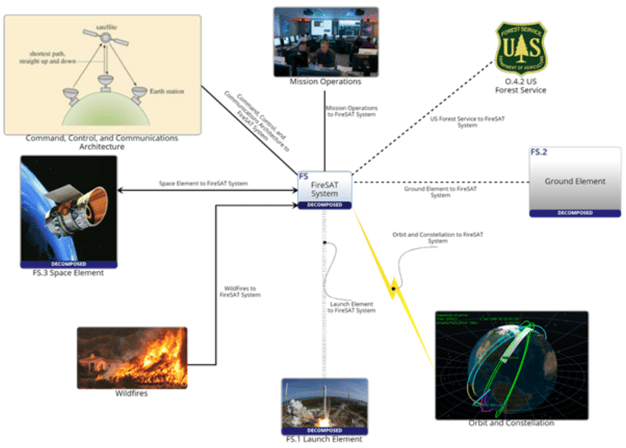
Then use the Discrete Event Simulator to check that our process model executes. Once it executes, we will check the variance of the cost, schedule, and performance in the Monte Carlo Simulator.
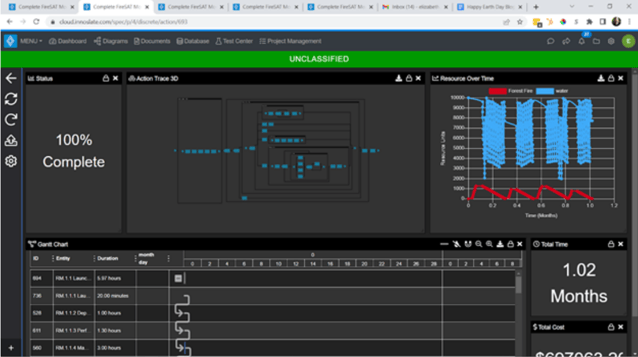
Now that we know the process works, we create a test suite and track our test progress. Lastly, we will use a Traceability Matrix. This final step leverages the built-in traceability and suspect assist to ensure accurate traceability.
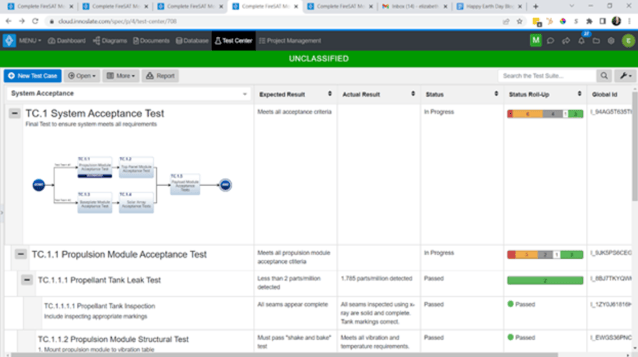
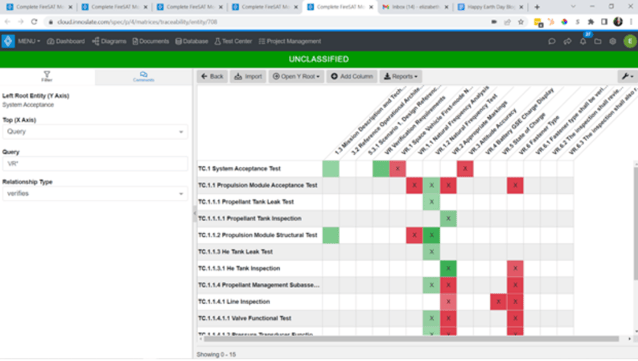
By leveraging requirements management, process modeling, asset allocation, cost simulation, testing, and more, this project demonstrates how systems engineers can contribute to a more sustainable and safer world. Sign up for a free account and try the FireSat project in the welcome tour. ⬇️
Have questions about model-based systems engineering or requirements management? Talk to an expert and see how Innoslate can streamline your projects from start to finish.

Smart systems engineering is no longer just about building a model. In modern digital engineering environments, teams are expected to deliver...

Tracking and meeting requirements is necessary for any successful project in systems engineering and requirements management. This is where a...

Establishing effective requirements is the foundation of successful project management and product development. Requirements Management provides a...